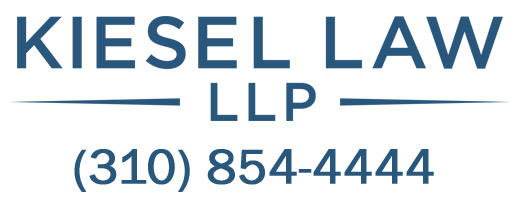Online Privacy in the Workplace: Employee Rights & Employer Responsibilities
Now more than ever, the modern workplace is a digital landscape. Both remote and in-office employees use internet-connected devices in a variety of ways when doing their jobs. From editing and sharing files via the cloud to coordinating with co-workers via messaging apps and video conferencing, we spend a lot of time online.
This unprecedented level of digital workplace integration may enhance productivity, but it also raises important questions about online privacy rights for employees and the responsibilities of employers to safeguard and respect their employees’ data privacy. Companies who shirk these responsibilities may open themselves up to class action lawsuits.
Here at Kiesel Law, we take employee privacy rights seriously. If you have had sensitive data stolen due to employer negligence, you may be entitled to compensation. In this guide, we’ll provide a basic overview of employee privacy rights, as well as tips for how employers can ensure that their employee’s private information stays secure.
Employee Online Privacy Rights
Expectation of Privacy
Employees typically have a reasonable expectation of privacy when using workplace computers for personal purposes, especially if their employer has not explicitly stated otherwise. This means employers cannot engage in invasive monitoring without consent or legitimate cause.
Personal Accounts and Communication
In many cases, employees have the right to keep their personal email accounts, social media profiles, and other personal online activities private. Employers should refrain from accessing or monitoring these accounts without express consent.
Protected Classes and Discrimination
Online activities can reveal information about an employee’s protected characteristics, such as race, religion, or sexual orientation. Employers must not use this information for discriminatory purposes.
Whistleblower Protections
Employees who report illegal or unethical behavior within their organization are often protected from retaliation. This includes protection against any form of monitoring or disciplinary action intended to deter whistleblowing.

Online Privacy Responsibilities of Employers
Transparency and Consent
Employers should be transparent about their data collection and monitoring practices. Employees should receive clear information about what is monitored, why it is monitored, and how their data is used. In some cases, obtaining explicit consent may be necessary.
Legitimate Business Interests
Employers have the responsibility to ensure that any monitoring or data collection activities are based on legitimate business interests. This includes protecting company assets, ensuring network security, and preventing misconduct.
Data Security
Employers must implement robust security measures to protect employee data. This includes safeguarding sensitive personal and financial information from unauthorized access, data breaches, and cyber threats.
Limiting Access
Access to employee data should be restricted to individuals who require it for legitimate business purposes. Employers should have clear policies in place to prevent unauthorized access or use of employee data.
Privacy Policies
Employers should establish comprehensive privacy policies that clearly outline data collection practices, the use of employee data, and the rights of employees in terms of data privacy.
Training and Awareness
Employers should provide training to employees regarding data privacy and security best practices. This includes educating employees about the potential risks associated with online activities in the workplace.
Non-Retaliation
Employers should not retaliate against employees for asserting their data privacy rights or raising concerns about data privacy practices within the organization. Whistleblower protections should be upheld.

Protecting Online Privacy in the Workplace
Balancing employee rights and employer responsibilities in the realm of online privacy is essential to foster a healthy work environment. Here are some strategies for employers to achieve this equilibrium:
Clear Policies
Employers should establish and communicate clear policies regarding data privacy in the workplace. Employees should be aware of their rights and responsibilities.
Consent and Choice
Whenever possible, employers should seek employee consent for data collection and monitoring. Offering choices when it comes to online privacy practices can empower employees.
Minimize Invasive Practices
Employers should minimize invasive monitoring practices and only collect data that is directly related to legitimate business interests. Overly intrusive monitoring can erode employee trust.
Data Retention
Employers should have policies in place for the retention and deletion of employee data. Keeping data longer than necessary can pose risks to privacy and security.
Employee Education
Employers should invest in employee education on data privacy, emphasizing the importance of secure practices and the potential consequences of improper online behavior.
Our Attorneys Are Experts in Online Privacy Law
Unfortunately, not every employer is willing to live up to their responsibilities. If you believe your employee privacy rights have been violated, you may be able to pursue legal action. Contact Kiesel Law today.


